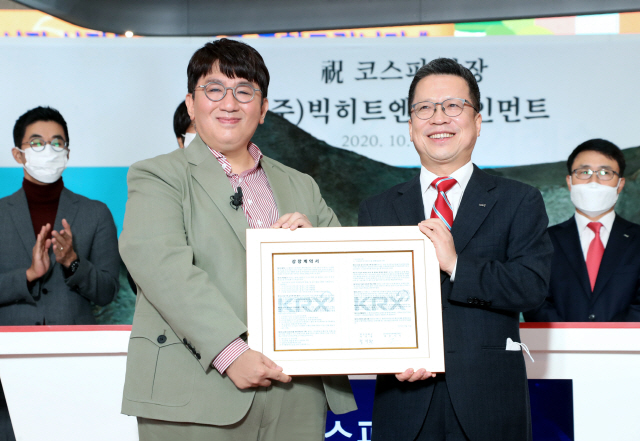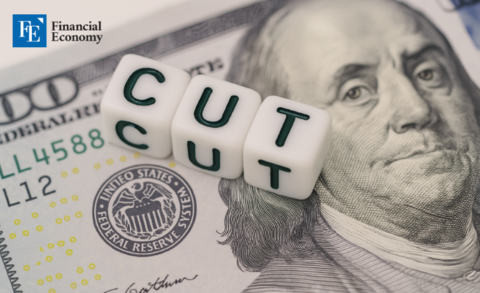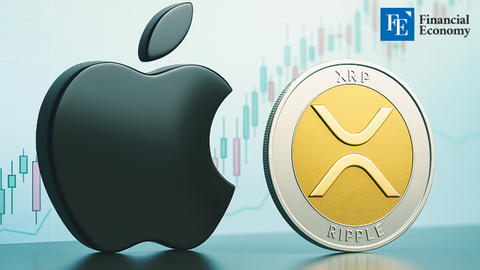Bang Si-hyuk and Associates Hit Multi-Billion Won Jackpot After IPO? Prosecutors and Police Ramp Up All-Out Pressure on HYBE
Input
Modified
HYBE Deceived Public by Claiming No IPO Plans, Then Went Public Early Investors Induced to Sell Off Large Stakes Secured Over USD 290 Million — Prosecution Investigation Imminent

Prosecutors have launched a full-scale investigation into alleged insider stock trading at HYBE, following a recent raid of the company's headquarters. Simultaneously, police are pursuing a separate probe targeting HYBE Chairman Bang Si-hyuk on suspicions of "fraudulent unfair trading," with the Financial Supervisory Service (FSS) also conducting an inquiry—indicating mounting legal pressure on the company from all fronts.
Bang Si-hyuk Under Investigation for Fraudulent Trading
According to sources in the entertainment and legal industries on the 30th, the Financial Securities Crime Joint Investigation Division of the Seoul Southern District Prosecutors’ Office raided HYBE’s headquarters on May 27. The investigation involves a former HYBE employee (referred to as "A"), who allegedly used insider information in January 2021—before HYBE (then Big Hit Entertainment) publicly announced its investment in YG PLUS—to buy shares and earn an illicit profit of about USD 173,858. Big Hit later confirmed a partnership with YG PLUS involving equity and music distribution.
Separately, the Seoul Metropolitan Police’s Financial Crimes Unit applied for a search warrant on May 28 targeting Bang Si-hyuk in relation to fraudulent trading allegations. The FSS’s Investigation Division 2 is conducting a parallel probe. An FSS official stated, “Once final charges are confirmed, we plan to fast-track the case and refer it to the prosecution.”
Misleading Investors Pre-IPO and Dumping Stock
According to materials obtained by the FSS, in 2019—prior to HYBE's IPO—early investors who held shares in Big Hit Entertainment urged Bang Si-hyuk to begin preparing for a listing. However, Bang’s team reportedly told them that listing was not feasible at the current company valuation. Believing this, many venture capital (VC) investors sold their shares.
Contrary to those assurances, Bang was actively preparing for an IPO. The sold shares were purchased by private equity firms (PEFs) such as Eastone Equity Partners, New Main Equity, and STIC Investments—firms established or linked to Bang’s associates. Bang reportedly entered into secret agreements with these PEFs, promising to receive 30% of any IPO-related investment profits. The contracts included a clause obligating Bang to repurchase shares if the IPO failed within a set timeframe.
After the IPO, these PEFs reaped massive profits, and Bang personally received an estimated USD 300 million as part of the deal. The FSS reportedly secured evidence showing that, despite publicly denying IPO plans, Bang's side had applied for a designated audit—an essential IPO preparation step—suggesting he was already moving toward listing. Had early investors retained their shares, they could have profited significantly; instead, they lost that opportunity by trusting Bang’s claims.

Undisclosed Shareholder Agreements and Lock-Up Evasion
These shareholder agreements were not disclosed in HYBE’s IPO filings, as required. Neither the Korea Exchange during its IPO review process nor the FSS during securities registration received reports of the agreements.
Investment bankers now question how HYBE’s IPO underwriters failed to report the agreements despite standard due diligence procedures. One Korea Exchange official stated, “Bang’s agreement to share profits with major investors should absolutely have been disclosed as a material issue,” noting that such omissions are virtually unheard of during IPO processes.
Experts believe this arrangement allowed the PEFs linked to Bang to avoid lock-up restrictions normally placed on major shareholders. As a result, these funds dumped large volumes of stock immediately after HYBE went public. The IPO was priced at USD 97.8 per share—roughly five times higher than the pre-IPO valuation. After listing, the stock surged to over USD 304.25 before crashing by around 70% within a week, partly due to the massive sell-off.
This scheme—where a major shareholder collects post-IPO profits from behind-the-scenes investors—is now being flagged as a potential method for evading mandatory lock-up periods. The FSS is focusing on this point and is reportedly considering charging Bang with fraudulent unfair trading under Korea’s Capital Markets Act. If the illegal profits exceed USD 3.6 million, the law mandates a minimum five-year prison sentence or even life imprisonment.





















